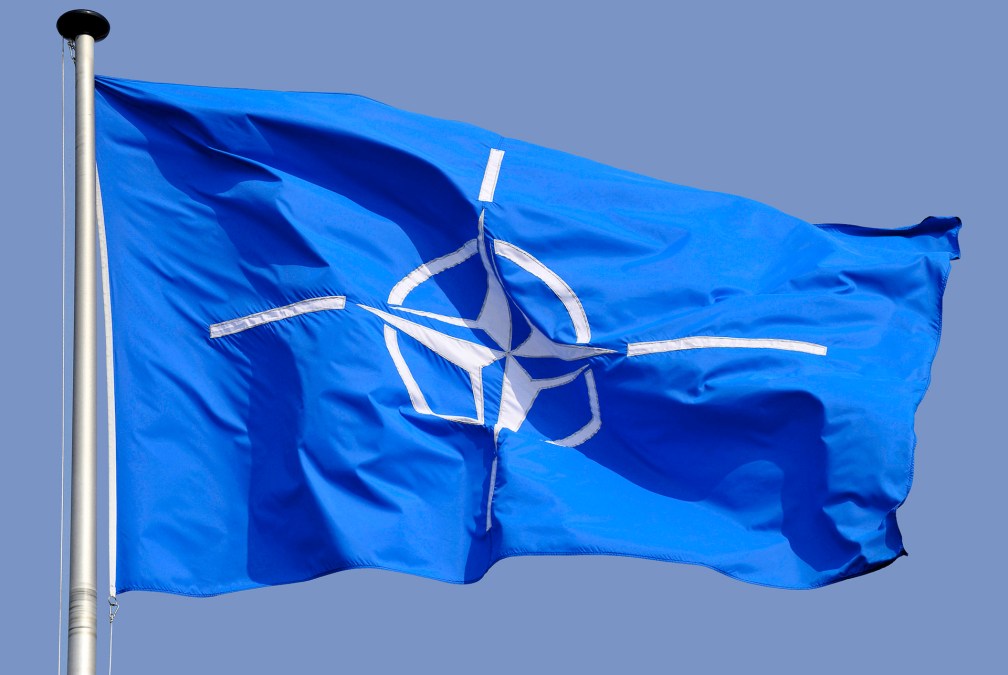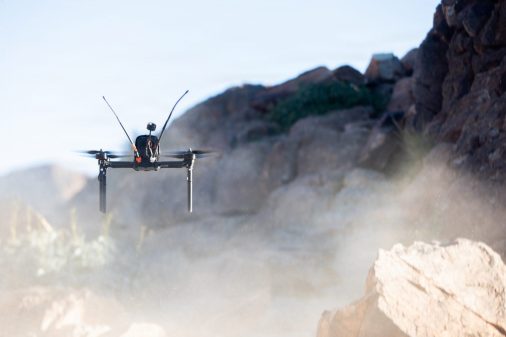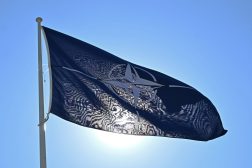10 vendors move into next phase of NATO tech accelerator program

NATO is forging ahead with its pursuit of dual-use technologies, providing additional funding to 10 companies who passed muster for the next phase of its Defence Innovation Accelerator for the North Atlantic (DIANA) effort, the alliance announced Tuesday.
The DIANA initiative, which was launched in 2022 and has its main office in London, aims to boost alliance cooperation on emerging tech and foster a far-reaching innovation network. It’s particularly focused on supporting startups. Its board of directors is chaired by Barbara McQuiston, a former senior Pentagon science and technology official.
The initial cohort for DIANA included 44 vendors, and now 10 of those have been tapped to move into phase two based on their ability to “demonstrate progress in their commercial and defence market potential, the technical viability and novelty of their solutions, and their investment readiness,” according to a NATO release.
A senior NATO communications official previously told DefenseScoop that phase two will be focused on “scaling up.”
One of the companies chosen for the next phase, Dolphin Labs, is headquartered in the U.S. and has developed an xNode wave energy converter. The technology “generates persistent, renewable electricity to enable remote ocean sensing networks, subsea microgrids and communications. This new class of expeditionary technology enables enhanced maritime domain awareness to improve the safety and security for our offshore natural resources and critical infrastructure,” according to a description included in a NATO release.
“To respond to a changing world, DIANA is identifying, developing and deploying dual-use, emerging and disruptive technologies with the power to reduce the risk of conflict, and mitigate its impacts,” the company said in a LinkedIn post Tuesday. “Dolphin Labs looks forward to working with the DIANA team over the next six months to boost the commercialization and adoption of our innovation.”
Four U.K.-based vendors were also tapped: Aquark Technologies, which focuses on improving the size, weight, power and cost of quantum devices; cybersecurity firm Goldilock; IONATE, which builds tech for smart grids; and semiconductor company SECQAI.
Other selectees include Lithuania-based Astrolight, an innovator in high-bandwidth laser communication; Italy-based Ephos, which designs and manufactures glass-based integrated photonic circuits to power computing, communications and sensing devices; Netherlands-based Lobster Robotics, a maker of underwater drones that can do high-resolution mapping of sea beds; Canada-based Phantom Photonics, which develops quantum sensing solutions for 3D imaging; and Poland-based REVOBEAM, which specializes in production of “intelligent” antennas that can be used to enable unmanned systems, according to the NATO release.
The 10 companies will each receive an additional 300,000 euros for phase two – significantly more than the 100,000 euros each of the 44 vendors initially chosen for the first cohort received to work on their technologies.
“To solve complex security and resilience problems, we need an ecosystem of creative, collaborative innovators willing to bring their talent and expertise to bear. These ten innovators, and indeed all of our first cohort, are paving the way for a strong pipeline of innovation for Allied nations to adopt,” Deeph Chana, DIANA’s managing director, said in a statement.
Adrian Dan, chief commercial officer for the initiative, said the vendors tapped for the next phase have emerging tech with “high adoption potential.”
“With increased exposure to investors, end users and partners, we are excited to see how far our innovators will go,” Dan said in a statement.
The DIANA initiative is highly selective. For the first cohort chosen last year, only 44 organizations made the cut out of more than 1,300 applicants after an evaluation of their proposals that focused on three key “challenge areas” — energy resilience, sensing and surveillance, and secure information sharing. Less than 25 percent of those firms have been tapped to move into phase two.
In December 2023, a senior alliance official told reporters that DIANA is “a really interesting example of how you can use an organization like NATO to reach out beyond the traditional defense sector.”
Companies chosen for each cohort work with mentors to develop their projects, the official noted during a Defense Writers Group meeting in Washington, speaking on condition of anonymity.
“The whole system is set up in a way that is very dynamic. And so it’s going to be learning from this first cohort of innovators and refining every year … The system is built in a way that we will adjust and upgrade and innovate with every single cohort,” they said.
In July, officials kicked off their search for the second DIANA cohort, which will join the accelerator in early 2025. According to NATO, the alliance received more than 2,600 submissions from vendors that were asked to focus on five challenge areas: energy and power; data and information security; sensing and surveillance; human health and performance; and critical infrastructure and logistics.
“We’re looking to select roughly about 15 companies per challenge area, which is about 75 and is proportionately the same as we did last year,” Tien Pham, DIANA’s chief scientist, told reporters in June.
Meanwhile, the alliance is moving to expand DIANA’s footprint. Earlier this year, it announced that the number of related tech accelerator sites across the multinational network will jump from 11 to 23, and the number of test centers will increase from 90 to 182. After the expansion — which is intended to enhance the alliance’s capacity to support companies and other participants as they develop their tech — there will be DIANA locations in 28 nations, officials said.






